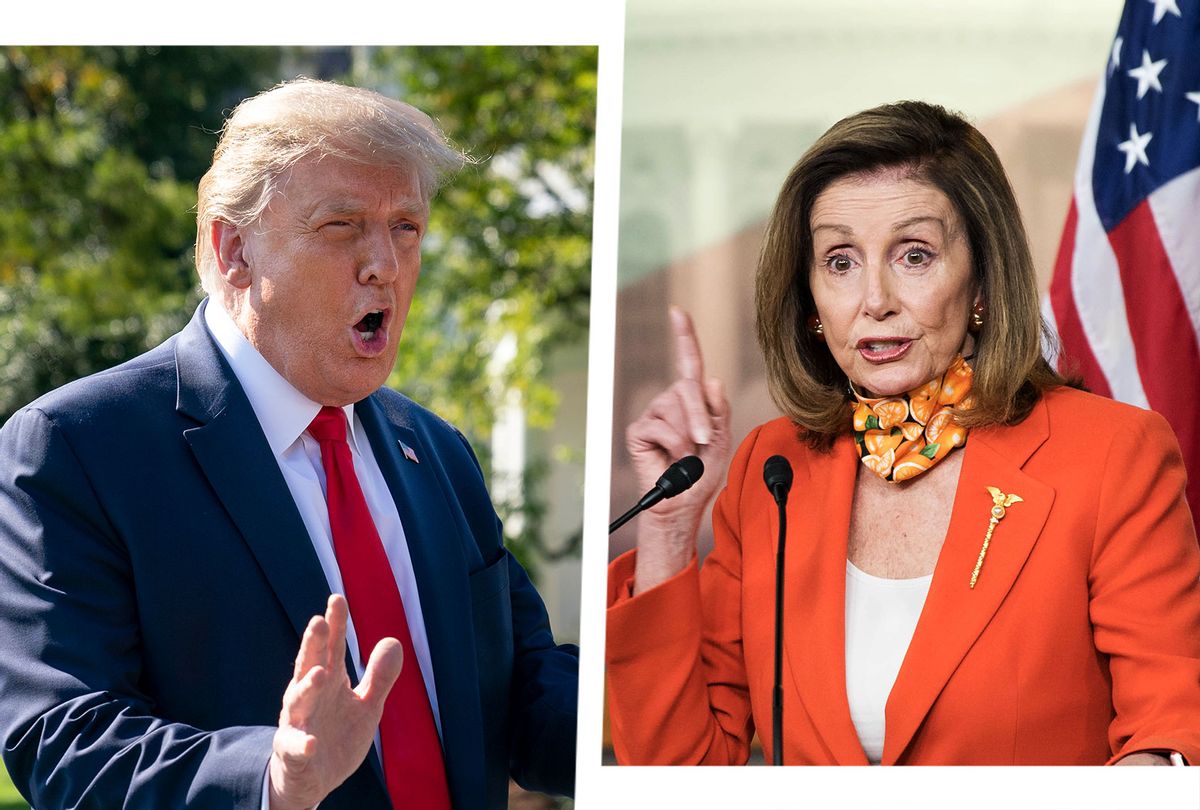As Donald Trump's second impeachment trial looms near, bringing the former president's incitement of insurrection into greater focus once again, members of the GOP are –– in another ambitious act of baseless conspiracy –– deflecting blame onto their Democratic counterparts for the riot and framing impeachment as a "diversionary operation" meant to distract from Democratic culpability.
The idea that Democrats, who were chiefly targeted by rioters themselves, are responsible for the riot, is not entirely novel. Shortly after the Jan. 6 riot, Sen. Lindsey Graham, R-SC, tried to put House Speaker Nancy Pelosi, D-CA, under scrutiny, asking in an interview with Fox News, "Where was Nancy Pelosi? It's her job to provide Capitol security."
A month later, former White House Chief of Staff Mark Meadows and Senator Ron Johnson, R-WI, are now taking Graham's cue, leading the charge to position their Democratic colleagues as enablers of the insurrection.
In an interview with Fox News on Sunday, Meadows assigned blame to Democrats for not organizing the Capitol Police adequately in anticipation of the riot. "The Capitol police do a tremendous job," he said, "But they need to be in power to do that job." Meadows continued, "Some...decisions weren't made appropriately, in my opinion, and those decisions did not come from 1600 Pennsylvania Avenue. It came from the other end of Pennsylvania Avenue," he said, referring to the Capitol.
In another Sunday interview with Fox, Senator Johnson went a step further by zeroing in on House Speaker Pelosi –– who was evacuated from the Capitol as her office was stormed and ransacked –– speculating that she have ulterior motives for holding Trump's impeachment trial. "Is this another diversionary operation? Is this meant to deflect away from potentially what the speaker knew and when she knew it?" Johnson asked. "I don't know, but I'm suspicious," he continued, without citing evidence that would, in fact, put Pelosi under suspicion.
According to a fact-check done by AP News, Pelosi does not have any authority over the day-to-day operations of the Capitol Police. "No one person oversees USCP," said Bee Barnett, the director of communications and programs for the US Capitol Historical Society, "The oversight apparatus includes representation from the Architect of the Capitol, the House and Senate Sergeants at Arms, as well as committees from both Houses of Congress."
Last week, in a closed-door briefing, Acting Capitol Police Chief Yogananda D. Pittman apologized to members of Congress and acknowledged that the "the Department...did not do enough" to prepare for the violent unrest, dispelling the notion that Democratic lawmakers should be held in any way responsible for the unrest.
According to Trump's impeachment lawyers, Trump and the White House took immediate steps to quell the violence on Capitol Hill, noting that there was a "flurry of activity." However, "complex procedural elements," they implied, proved too cumbersome for swift action, citing a similar sense of bureaucratic vagueness as Meadows, perhaps alluding to an internal Democratic holdup
As Salon reported, the Pentagon denied multiple requests by Maryland Gov. Larry Hogan to call in the National Guard. According to Insider, leading up the riot, the Pentagon also "curtailed the ability of DC guardsmen to deploy troops, receive ammo and riot gear, engage with protesters, share equipment with local police, and use surveillance without explicit approval from Trump's acting Defense Secretary, Christopher Miller."
Democrat-led investigations are currently underway to identify GOP members of Congress that may have led "reconnaissance" tours for rioters throughout the Capitol building on Jan 5, the day before Trump's rally.



Shares